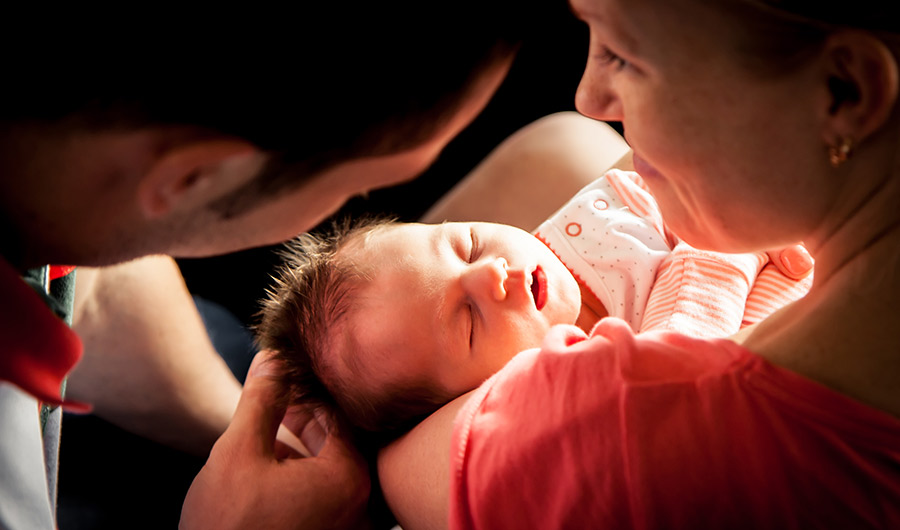New Dads May Get Postpartum Depression As Often as New Moms

AndreyUG via Shutterstock
(Inside Science) -- Today, at the annual convention of the American Psychological Association in San Francisco, two psychologists will present individual literature reviews of published studies and clinical information from practitioners indicating that fathers of newborns experience depression at a similar rate as mothers. They say postpartum depression affects not just new mothers, but fathers as well.
The researchers, psychologists Sara Rosenquist, of the Center for Reproductive Health Psychology in Cary, North Carolina, and Dan Singley, of the Center for Men's Excellence in San Diego, support a growing body of research suggesting that intense emotional, social and physiological changes -- rather than fluctuating hormones -- are the biggest contributors to postpartum depression. Doctors and society at large, they say, need to provide parents of newborns more support if they aim to meaningfully decrease cases of postpartum depression.
“Bringing home a baby, one way or another, is highly stressful and disruptive,” Rosenquist told Inside Science. “You have to reorganize your sense of self, your entire social network, your entire life, and we don’t do a particularly good job -- in fact, we do a particularly bad job -- in our culture of supporting new families in this transition.”
According to Rosenquist, in the weeks immediately following the birth of a child, both biological and adoptive parents of either sex can exhibit a wide range of physical as well as psychological symptoms that fall under the umbrella of depression. Studies consistently show that about 10 percent of new fathers are diagnosed with depression in this time period, which is statistically similar to the 7-15 percent of women who are diagnosed with depression. Adoptive parents exhibit symptoms at similar rates, said Rosenquist.
According to Rosenquist, studies have shown that 80 percent of major cases of depression are triggered by external factors that create stress. These factors can include events that make people sad, such as the death of a loved one, a catastrophic illness, or financial trouble, but also positive events, like getting married or buying a new house. That means that both happy and sad events can activate the body’s central stress response system and put a person at risk for developing depression, said Rosenquist.
Although typically a joyous event, having a baby can trigger different, and oftentimes, unexpected dynamics in a relationship. Rosenquist found that after a baby arrived, couples who previously shared household roles tended to gradually assume increasingly traditional gender roles. Mothers tended to spend less time earning money and more time doing household work than fathers. The difference between expectations and reality can produce conflict and reduce satisfaction. One study found that the couples who reported being the happiest before a baby was born felt the greatest decline in marital bliss in the ensuing months.
“Partner relationship difficulties seem to have a fairly robust association with depression for both mothers and fathers,” said James F. Paulson, an associate professor of psychology at Old Dominion University in Norfolk, Virginia, who was not involved in Rosenquist’s study.
Paulson, who has studied the role marital satisfaction plays in depression, said that, statistically, dissatisfaction with a relationship is more strongly tied to depression than hormones.
In 2011, Paulson and his team began following 80 married couples from the time they conceived until several months after their child was born. Early results from this longitudinal study show that depression rates doubled in men and women after they brought a newborn home.
Rosenquist and Singley both recommend that doctors assess fathers, along with mothers, for signs of depression after the birth of a child. They suggest that parents keep a network of supportive friends, which can shield parents from the challenges of parenting and relationship conflicts. Finally, societies can offer family leave from work to give growing families time and space to adjust to their new lives.
In addition to their own research presentations, Rosenquist and Singley will take part in a panel discussion that focuses on the issue of postpartum depression in men.
“Families are suffering on so many fronts,” Rosenquist said. “The paradigm needs to be re-examined. It needs to be refined.”

